Need to give the car a wash? Deliberating between doing it yourself or going to a professional car wash? If you don’t have the time, desire, or supplies to clean your car at home, then it’s time to hit the pros.
There are three types of places you can go to get your car washed, all with differing degrees of effectiveness. Options include a quick and easy automated touch car wash; a more intensive but less expensive touchless car wash; or a do-it-yourself car wash facility.
With a car wash facility there’s inherent risk of marring your vehicle’s finish or not getting it fully clean, but there’s no question it’s cheaper, quicker, and easier than doing it yourself at home, which is what we recommend.
The most important thing is cleaning that car. It’s been established that cleaning your car is a good thing. Inside and out it leads to better resale value, longer (vehicle) life, and, most of all, a safer driving experience.
Here’s a deeper look at the pros and cons of using a car wash.
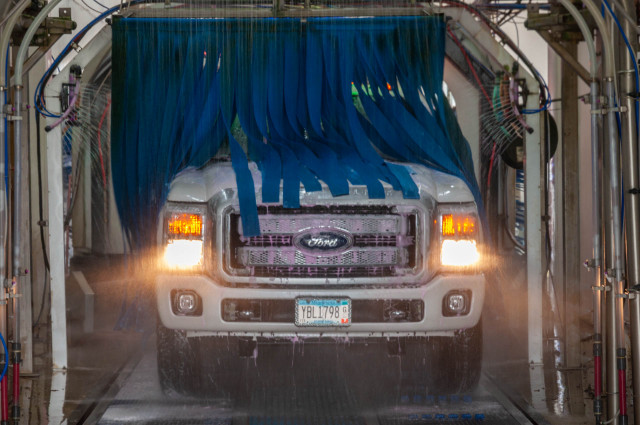
Touch car wash
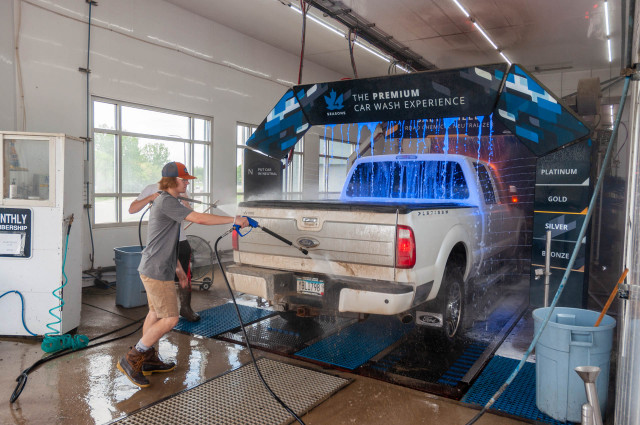
Touch car wash
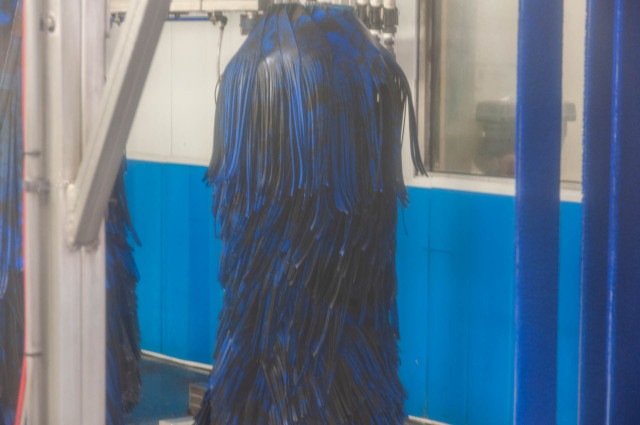
Touch car wash
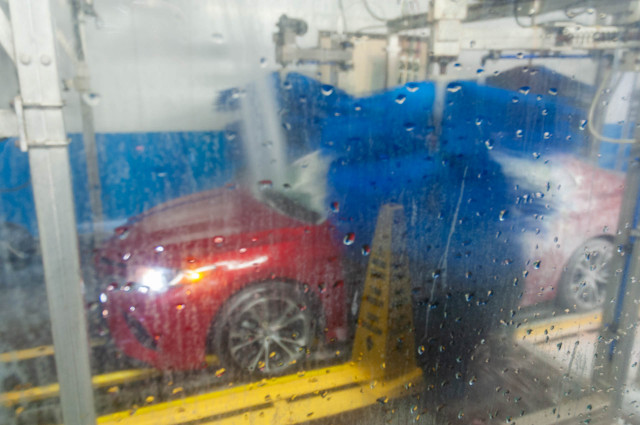
Touch car wash
Now we touch
Remember as a kid going to the car wash and watching the car roll along the conveyor belt as cool lights flashed and soap was sprayed all over the car? Yeah, you were likely watching your car’s paint and finish get marred. The plastic and cloth brushes that whap, slap, and drag along your car’s finish are indeed taking the dirt and grime off your paint, but they are also leaving scratches, swirls, or hazing.
Automated touch car washes rely on soft cloth and plastic brushes, water, and soap to wash a vehicle as it rolls down a conveyor belt. They can save you time—but are more expensive than a touchless or do-it-yourself car wash. They can also be more damaging.
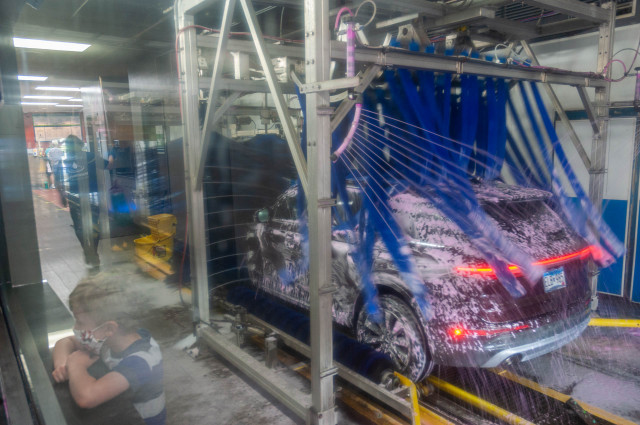
Touch car wash
Some touch car wash owners do it the right way and spend more to use more water or high-end lubricating soaps to keep these brushes properly lubricated, but even then it’s usually not enough to fully get all the dirt off the brushes that were used on the vehicle that preceded your car. Some go the extra mile to have an attendant rinse the and mud and dirt off before entering the car wash to help the situation. Also, car wash owners typically don’t promote when they’re using the good stuff.
Car washes often use strong soaps that sometimes can remove hard water spots. Most car washes add a soft-water rinse to prevent water spots, and, for an upcharge, they usually have a liquid hot wax that can be applied at the end of the wash cycle for a layer of short-lasting genuine protection.
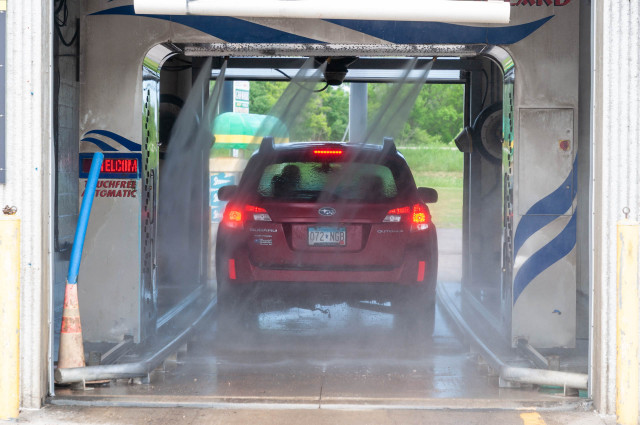
Touchles car wash
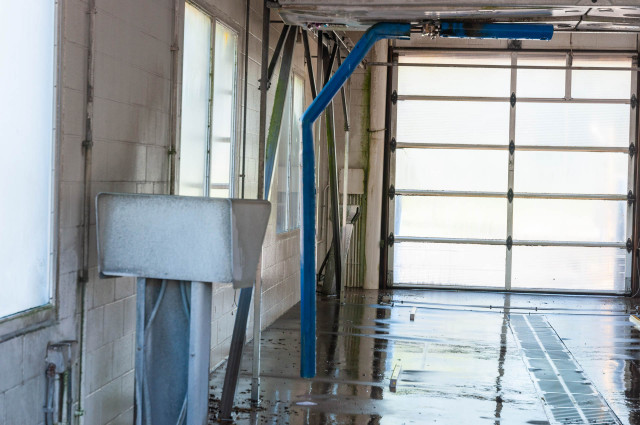
Touchless car wash
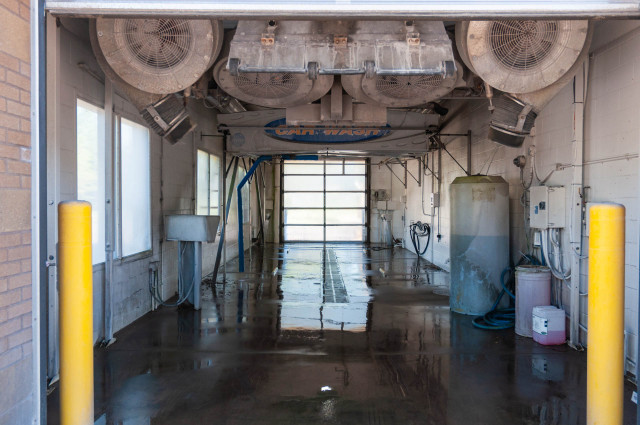
Touchless car wash
Don’t touch me
Touchless car washes typically cost less than a touch wash, have no brushes, and, as the name implies, clean your vehicle without ever touching the paint. Touchless systems utilize a high-pressure sprayer setup on either side of the vehicle (or a wand that rotates around the vehicle) to blast away dirt and debris.
Touchless car washes will not scratch your vehicle. It will get large chunks of dirt and debris off and do a decent job overall of cleaning the car. But a film of dirt and road grime will remain on the paint. It’ll be more apparent on a white car than a dark car, but it’s there. One wipe with some spray wax and a microfiber towel will reveal how much dirt is left on the paint. In the Midwest in winter, it’s a decent amount.
A touchless car wash is an easy way to get the road salt or magnesium chloride rinsed off a vehicle, but it won’t be completely clean.
A follow-up in the garage with microfiber rags and liquid detailer or wax will do the job.
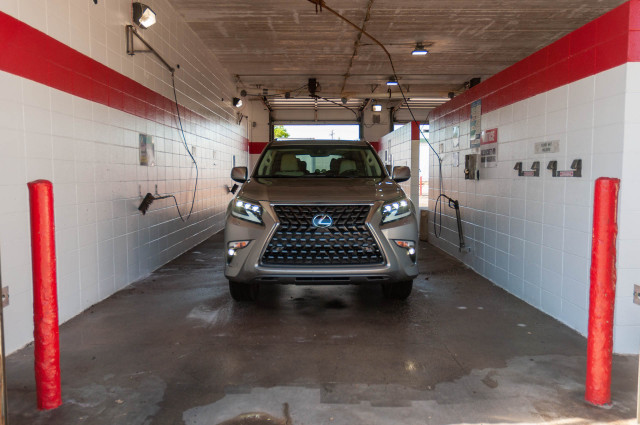
Do-it-yourself car wash
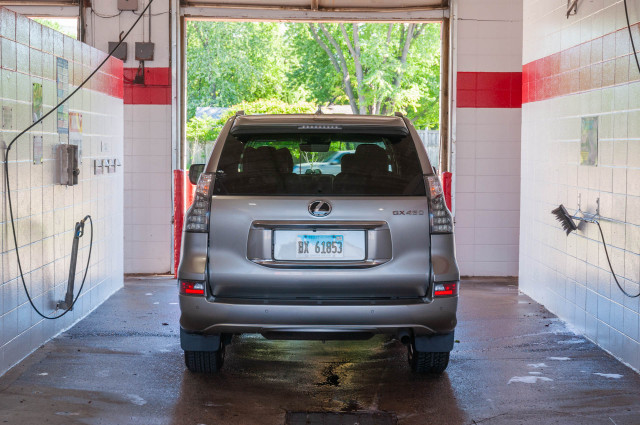
Do-it-yourself car wash
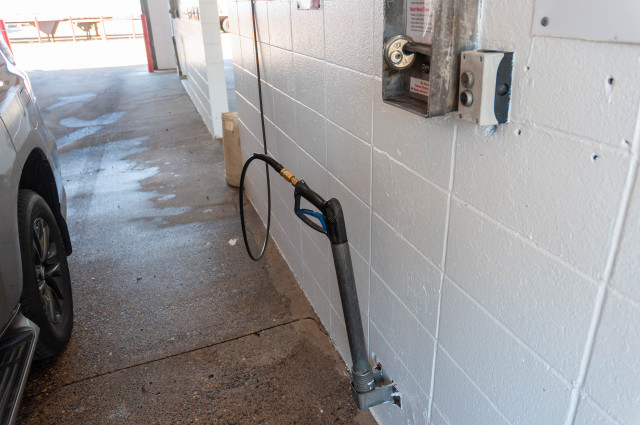
Do-it-yourself car wash
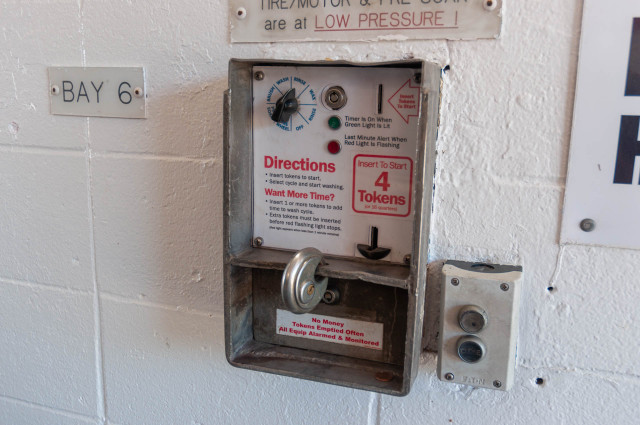
Do-it-yourself car wash
Do-it-yourself
Many do-it-yourself car washes have disappeared over the years. The remaining do-it-yourself car washes are hit or miss. This option is a cost effective one for only a few bucks, though if you’re moving slow you’ll have to reload the machine and double your price.
Do-it-yourself washes consist of a coin-operated or credit card-controlled timer that gives you access to a high-pressure spray gun with a rotary knob that controls the rinse, soap, spot-free rinse, and wax options.
While some places offer soft water for the spot-free rinse to ensure there aren’t hard-water spots etched into the vehicle’s paint, all DIY washes feature long-handled wash brushes. While these brushes allow plenty of reach, and make quick work of washing dirt off your vehicle’s roof, hood, and trunk, they also pose a risk of scratching your vehicle’s finish just like the touch wash. Brushes made from horse hair do less damage, while less expensive brushes are made with plastic fibers that are to a car’s paint what a five-year-old with a marker is to your walls.
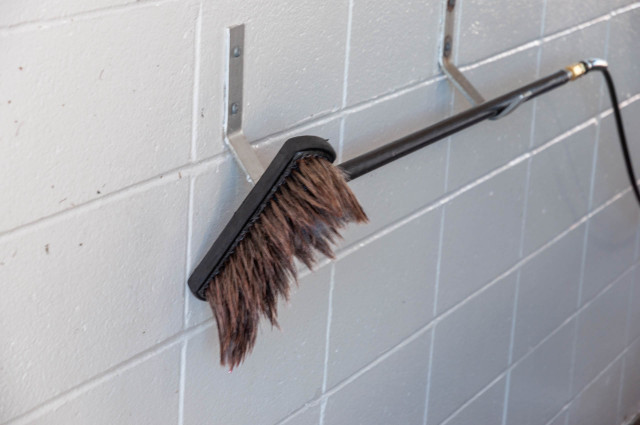
Do-it-yourself car wash
The truck plastered with mud that just used the same brush you’re about to use poses a risk to your vehicle’s finish. Let’s hope the previous user didn’t drop it on the ground and get sand in the brush. Rinsing it off won’t cut it. This brush will swirl, scratch, or haze your vehicle’s clear coat at the do-it-yourself car wash.
A work around, as I did as a kid in Minnesota winters, is to use the high-pressure spray gun to rinse everything from the vehicle, then use a bucket of soapy water and a microfiber mitt that you brought from home to hand-wash the vehicle. Then use the high-pressure gun to rinse it down again before doing a spot-free soft-water rinse. It’s work, sure, but your car will shine with pride afterward and you won’t hurt your vehicle’s finish.
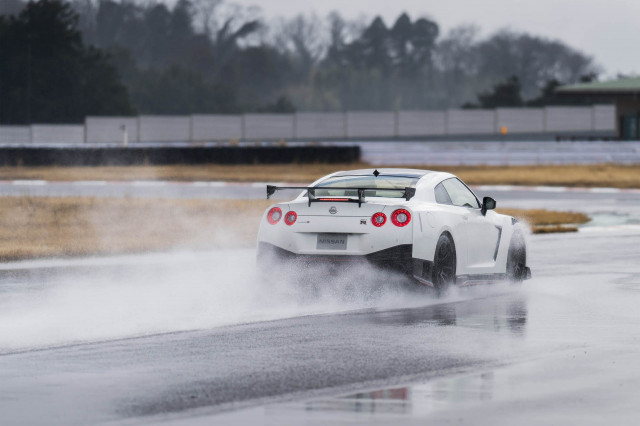
2020 Nissan GT-R NISMO
Rain
No. My grandfather, Pop-Pop, used to say driving or putting your car out in the rain was God’s way of washing the car. I loved my Pop-Pop, and I’m religious to a point, but until the day he died I told him God doesn’t wash your car and rain certainly doesn’t either. There is nothing to agitate the dirt and grime from the paint. Sorry, Pop-Pop.
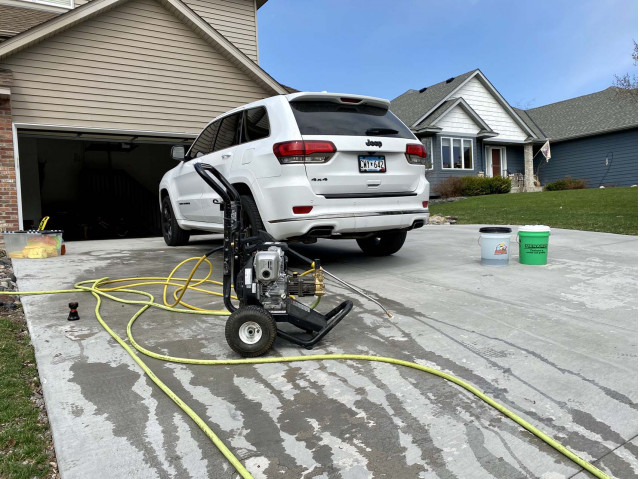
How to wash a car like a pro
Now what?
Washing your vehicle, especially the Feder way, is labor- and time-intensive. It’s work, and for those not nearly as neurotic as me, I’m told it’s not fun.
For those who can’t or don’t want to wash their vehicles themselves, these options can get the job done efficiently if not necessarily effectively.



